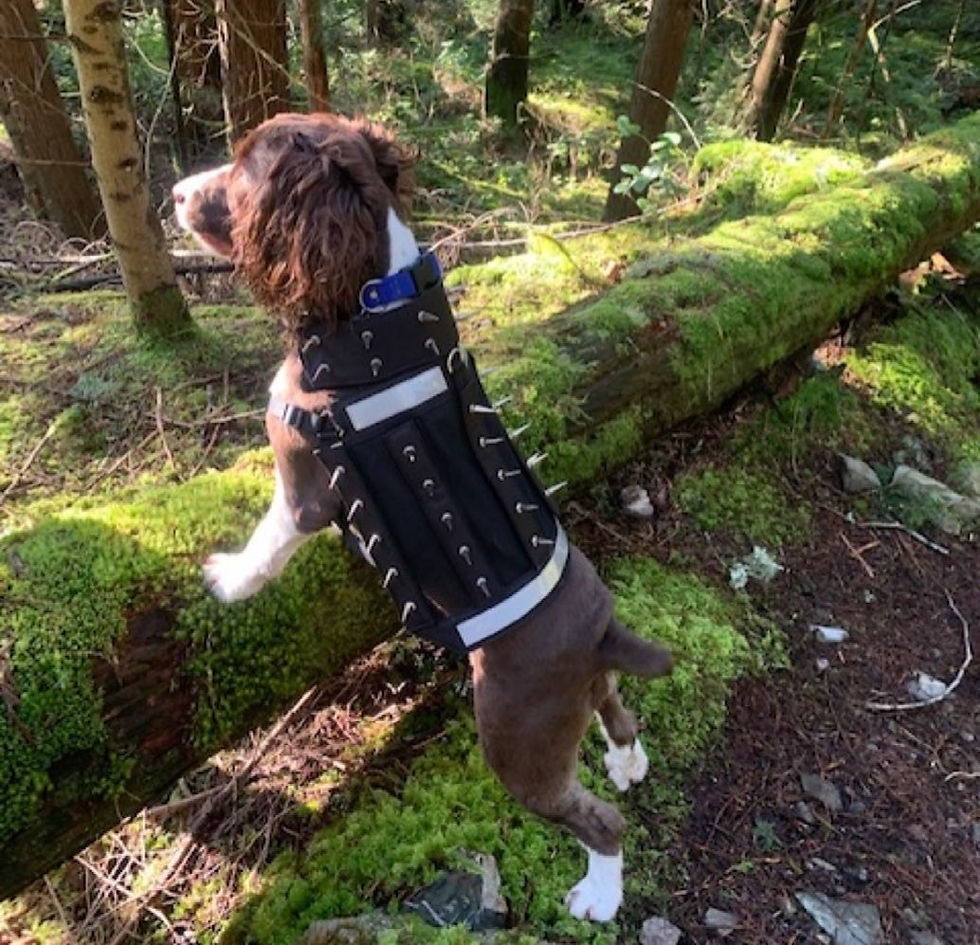As coyote attacks increase in Vancouver, here's how to keep your dog safe
- Jordan Kawchuk
- Aug 16, 2021
- 3 min read
After 3 attacks in Stanley Park in just 4 days, Vancouver dog owners are on edge. Here's how to protect your pup.

After three more coyote attacks in Stanley Park last week - one involving a 5-year-old boy - conservation officers are now urging people to stay out of the park altogether.
Vancouver has seen numerous attacks all over the city, but in Stanley Park alone, over 30 serious incidents have been reported this year and according to the B.C. Conservation Officer Service there has been at least a dozen dogs attacked in the park since December.
Though none of the attacks have been fatal, people are being randomly bitten everywhere in the park from Prospect Point to the pitch-and-putt green, with a Vancouver dog owner reporting earlier this summer that her dog was attacked by 3 coyotes while walking in the area.
“If you are in the park use abundant caution, as there is a high risk of encountering an aggressive coyote — particularly during dawn or dusk hours,” conservation officials stated in a recent Facebook post.
Danger for dogs
The escalating coyote attacks are extremely concerning to dog owners who take advantage of the summer months to get outside with their pets in parks, with Stanley Park being a favourite spot for dog walking in the city.
Dog mom Jennifer Van Evera is reminded of an experience a while back, of just what it’s like when a domestic dog stumbles upon wild dogs.
“Suddenly there was a sound I will never forget as long as I live,” recounts Van Evra when she and her 80-pound lab-sheppard were surrounded by a pack of coyotes in Deer Lake Park. “They all started to howl and chatter in unison.”
“I had heard about coyotes ganging up on larger dogs and I was terrified we could lose him.”
Van Evra and her dog escaped safely, and today she takes precautions with her new pup, putting a bear bell on him and keeping him on a leash after dusk.
There are countless unreported incidents of dog attacks and deaths as coyote populations become increasingly aggressive. Dogs aren’t just in danger on walks, they can be at risk in their own backyard as well.
Why now?
The balance between wildlife and city spaces requires a long term solution, but every year with urban growth, we face more and more encounters with coyotes.
From around April to August, coyotes deliver and protect their pups, making them highly defensive and on the prowl for more food sources. Aggression is definitely at play in the summertime.
Coyotes are also known as generalists, meaning they have wide parameters for habitat and food. That means they aren’t fussy about where they roam and what they consume. They are happy to move from their normal diet of rodents and fruit to other mammals moving about.
6 ways to protect your dog
Whether it's in your own yard, or walking your pup around the city, dog owners should be on high alert right now, and these 6 tips will go a long way in keeping your dog safe.
Keep it clean
Coyotes smell and eat almost everything. Keep your yard free of anything that would attract scent - fallen fruit, dirty grills, garbage, compost, and even bird feeders, which can be a gathering spot for rodents.
That means your dog too
Keep your dog’s yard clear of any poop and avoid feeding your pet outside. Even the smallest trace of leftover dog food in a bowl can have the wrong dogs calling.
Fence it up
Coyotes can jump high and dig deep. Ensure your fence is at least 6 feet high and secure in the ground 15-20 inches down. For extra protection, top your fence with barbed wire, PVC pipe, or rolling pipe products. You can even install motion lighting to scare off any curious visitors.
Walk close and walk loud
Off-leash adventures should not be an option in places with wildlife such as Stanley Park, especially in the evening. Keep your dog close at all times. Despite the recent human attacks, coyotes generally don’t like us. Carry a bell or a whistle, and when you see a coyote, don’t run - wave your arms and yell, hazing the predators away for good.
Suit up
There are a few anti-coyote collars and jackets you can find on the market, especially for smaller dogs. Some popular coyote vests have spikes and protective material to reduce harm should an encounter arise.
Be a snitch
Share any sightings with your local authorities, your neighbours, and social media dog groups. In British Columbia, you should call the Conservation Officer Service (COS) Centre at 1-877-952-7277 with any coyote concerns.


google seo google seo技术+飞机TG+cheng716051;
game game
game game
Fortune Tiger Fortune Tiger;
game game
Fortune Tiger Fortune Tiger;
Fortune Tiger Fortune Tiger;
Fortune Tiger Slots Fortune Tiger…
03topgame 03topgame
EPS машины EPS машины;
EPS Machine EPS Cutting Machine;
EPS Machine EPS and EPP…
EPS Machine EPS and EPP…
EPS Machine EPS Cutting Machine;